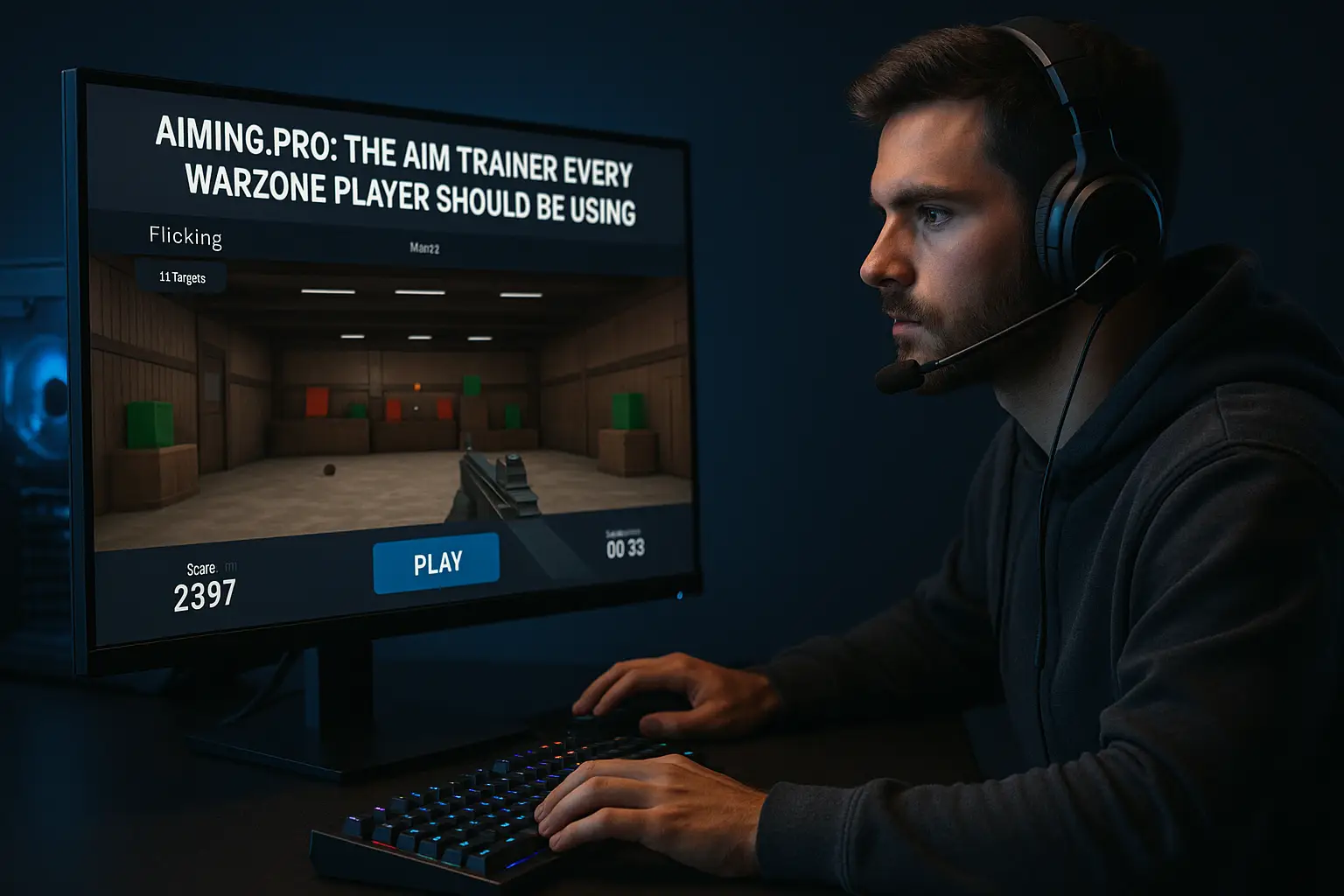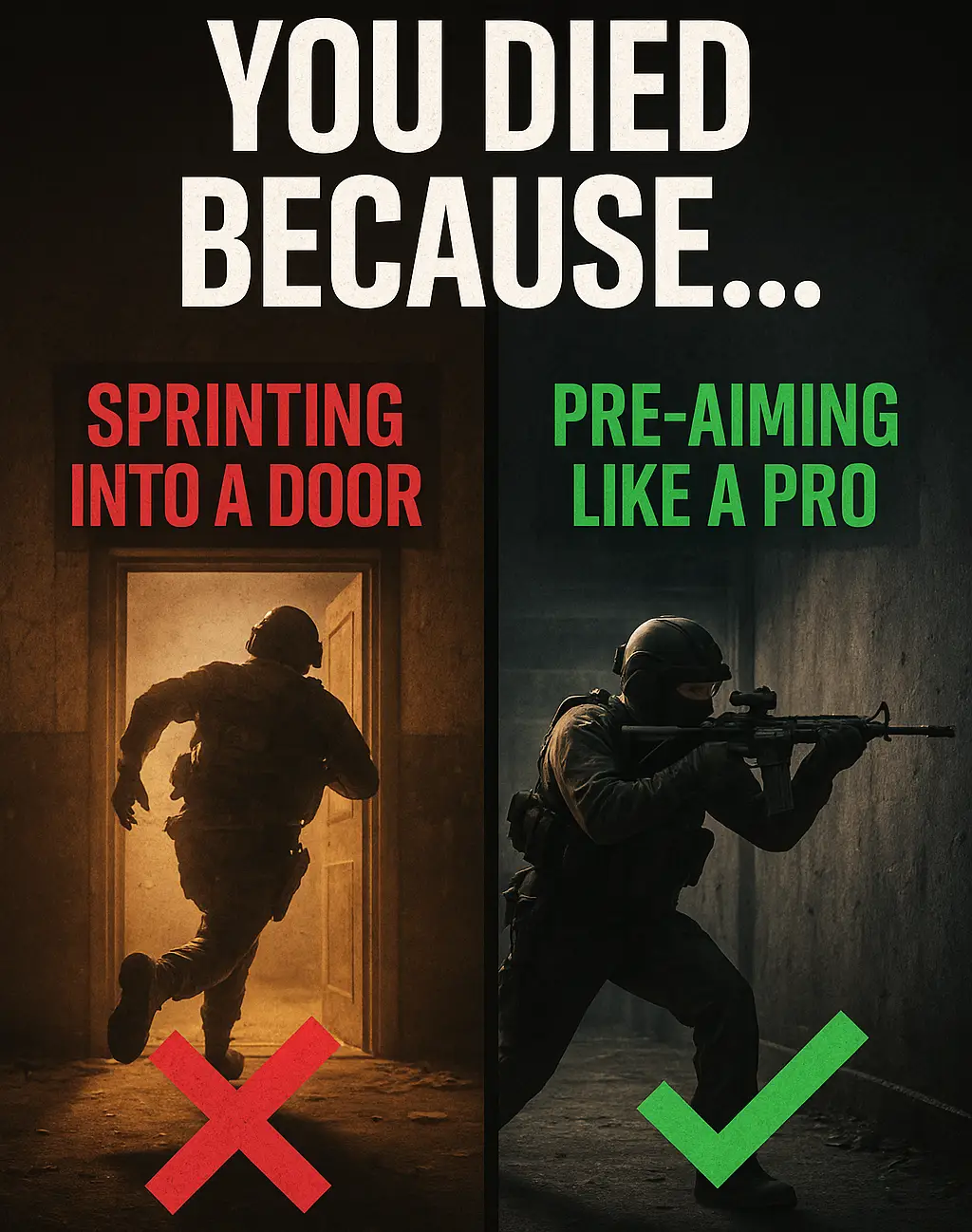
5 Tips to Master the Warzone COD Tactical Layout
Why Every Pro Player Uses the Tactical Layout in Warzone COD What Is the Tactical Layout and How Does It
Online multiplayer games can be entertaining, but have a downside: toxic players. Over the years, I’ve experienced my fair share of negativity in lobbies and chats, especially in fast-paced shooters. That’s why I decided to write about how to deal with toxic players in FPS games. In this article, I’ll share strategies that have helped me keep my cool, protect my mental focus, and still enjoy the game, even when others try to ruin the experience.
FPS games often bring people together in competitive scenarios. However, I have noticed that negative behavior can emerge, affecting the game’s atmosphere. Toxicity may be constant trash talk, aggressive language, or even intentional disruptions during gameplay. Understanding this behavior and having clear strategies to manage it has allowed me to enjoy the game even when negative interactions occur.
The game environment can become stressful when a few players focus on negativity rather than cooperation. Toxic actions might disrupt the team’s morale and even slow progress during a match. I have learned to view such moments not as personal attacks but as part of a challenge I can overcome by using the tools available in the game and adjusting my behavior.
Like many other competitive arenas, each match is an opportunity to improve my gameplay and communication skills. The key lies in learning how to control my reactions. This article outlines practical steps and recommendations based on my experience managing the impact of toxic players.
The first step in handling toxicity is understanding what it means. I have seen toxic behavior take many forms. Some players may use insults or derogatory language, while others intentionally mislead their team. In addition, extreme competitiveness sometimes triggers reactions that seem more harmful than helpful. Recognizing these patterns has helped me separate genuine feedback from destructive commentary.
In many cases, the toxicity is not a reflection of my skills but rather a reflection of the stress or personal issues the other players might be facing. While this does not excuse their attitude, I can look at the situation more broadly. Accepting that toxic players are often driven by their frustrations has been an important lesson in keeping my cool during intense matches.
Understanding that toxic behavior can be driven by a need for attention or a desire to feel superior is useful. I have observed that when players resort to negativity, they sometimes try to assert dominance over others. Recognizing these motives has encouraged me to focus on my performance rather than becoming entangled in adversarial exchanges. Knowledge about in-game contexts and social dynamics is valuable here.
Modern FPS games include complex systems that reward consistent teamwork and skillful play. I see toxic players often miss out on these benefits, as their approach disrupts a team’s chances of succeeding.
Every player reacts differently when confronted with toxic behavior. I sometimes feel frustrated or upset when targeted by negative remarks. I must take a moment to recognize these emotions before they affect my concentration during the game.
One of the most valuable lessons I learned is to set clear boundaries for myself. I do not need to engage in every negative comment. In many cases, silence can be more potent than a heated response. I have also observed that reacting impulsively often escalates the situation, so I focus on calming techniques and ignore the harmful chatter.
When a toxic remark is directed at me, I consider whether any response will result in a productive outcome. More often than not, the best decision is to mute the individual or use the block function that most games provide. This strategy protects my focus and limits the spread of negativity in the team setting.
This method also involves reflecting on why I feel compelled to reply. When I take a step back and analyze the situation, the immediate feelings of anger can subside. Each match allows me to practice resilience and work on techniques that keep my mind clear.
My approach to handling toxic players involves several practical strategies I have refined. One of the first steps I take when encountering toxicity is to use the mute function available in almost every FPS game. Limiting what I see or hear from disruptive players allows me to concentrate on my gameplay without distractions.

Reporting abusive behavior is another helpful tool. Most FPS games have built-in reporting mechanisms that allow the system to identify and deal with repeated offenders. Using these features protects me and improves the overall gaming community.
Another strategy involves not engaging with negative comments. I have observed that toxic players often thrive on the reactions they provoke. I deny them the satisfaction of influencing my mood by simply not responding. This method requires discipline and self-control, which I have worked to develop over time.
Teamwork plays an essential role in overcoming toxicity. I have found that when teammates support one another, the impact of toxic players is often diluted. Encouraging a positive atmosphere within the team helps overcome the disruptive behavior of those seeking negative attention. Whether through in-game text or using voice channels wisely, creating a supportive environment allows all team members to focus on winning.
The use of third-party tools has also been beneficial. I sometimes experiment with add-ons and filters that help reduce exposure to inflammatory language. These tools allow me to set my game settings to automatically filter out offensive words or phrases, further protecting my mental space.
These strategies, from muting to using reporting systems, have helped me stay in control during difficult matches. Retaining these tactics can lead to a more resilient and enjoyable gaming experience, regardless of the actions of toxic players.
Modern FPS games offer a variety of settings that help manage interactions with other players. I often take time to explore these options and choose settings that suit my comfort and style of play. Features like chat filters, block lists, and communication settings give me more control over the online experience.
One effective tool is the mute option. I have used it extensively to silence players whose comments are distracting or harmful. The option to report and block users further empowers me to take charge of my gameplay environment. Using these settings prevents negative influences and allows me to focus on map strategy and improve my skills.
Another feature I appreciate is the customization of notifications. In several games, I can set preferences that minimize the display of unwanted messages. This simple yet effective feature helps me keep my screen clear to concentrate on crucial game elements like team strategy, objectives, and enemy behavior.
Many games also include visual indicators of communication modes. I sometimes adjust settings to limit voice communications when team interactions are too heated. In these cases, I rely on concise text commands and signals to coordinate my team while avoiding unnecessary conflicts.
It is important to note that taking control of in-game settings does not imply isolating oneself completely. I have found that a balance is necessary. I adjust the settings to minimize noise while keeping channels open for constructive exchange. This balance is achieved through experimentation and reflection on what works best in different matches.
Staying positive in the face of toxicity demands strategies that go beyond in-game settings. I have developed techniques that help me maintain focus and keep a positive mindset during and after matches. These techniques complement the tools available within the game and help me manage stress effectively.
Taking short breaks between matches is essential to refocusing my mind. Even a few minutes away from the screen can help clear the tension created by negative interactions. Breaks allow for self-reflection, enabling me to address any lingering frustration before returning to the game with a refreshed attitude.
Establishing a routine that includes warm-up exercises and cool-down periods has made a noticeable difference in my gaming experience. This routine provides structure and helps minimize the effects of sudden outbursts. By sticking to a plan, I can reduce stress and better manage any aggressive responses from toxic players.
I have learned that concentrating on my performance rather than others’ negative behavior positively impacts my gameplay. I reduce the frequency of checking negative messages and instead set small performance goals, encouraging me to grow. This shift in focus transforms potentially disruptive moments into opportunities for personal development.
These techniques also extend to my activities outside of gaming. I sometimes dedicate time to hobbies and interests that take my mind off the pressure of competitive play. This balance contributes to a healthier perspective in and out of the gaming context.
Emphasizing self-improvement reminds me that every match is part of a broader experience. By developing a mindset that values personal growth, I can stay resilient when faced with toxic players and continue to enjoy the game constructively.
Over time, I have realized that managing toxic gameplay involves in-game adjustments and improving my overall well-being. I have started incorporating practices to boost my mood and focus outside the game. For instance, engaging in light exercise, practicing meditation, and spending time with friends helped me maintain a balanced mental state.
These activities are essential for preventing negativity and ensuring that the stress of gameplay does not spill over into everyday life.
Another technique I use is periodic reflection after playing sessions. I set aside a short time to consider what went well and what could be improved in handling disruptive interactions. This period of reflection helps me identify triggers and reinforces the best strategies for me.
Sometimes, I even write down my thoughts, which allows me to track progress over time and adjust my approach as necessary.
Community support also plays a key role. I actively seek forums and discussion groups where fellow gamers share their experiences and coping strategies. Listening to others and exchanging advice contributes to a sense of camaraderie that can be very uplifting. Knowing I am not alone in facing these challenges gives me the strength to continue refining my methods for staying positive and focused.
Moreover, I sometimes experiment with creative outlets such as streaming or writing about my gameplay experiences. Sharing my perspective with others provides a sense of connection and reinforces my understanding of the dynamics within competitive gaming environments. This creative process allows me to process negative experiences and transform them into learning opportunities, which ultimately helps set a positive tone for future matches.
I often receive questions about handling toxic players in FPS games. Here are a few that I have found to be shared among players:
Question: How do I know when to mute someone?
Answer: If a player’s comments consistently distract you or put you in a negative frame of mind, it is a good idea to mute them. I have learned that preserving my focus is more important than engaging in fruitless exchanges.
Question: Can reporting toxic behavior make a difference?
Answer: Yes, using in-game reporting functions helps identify persistent offenders. While it might not solve every issue immediately, consistent reporting creates a record that benefits the community over time.
Question: What should I do if I accidentally escalate a toxic situation?
Answer: Recognize that your reaction might fuel the negativity. Deciding away or using calming techniques can help defuse a potentially volatile situation.
Question: Are there any tools recommended for filtering chat?
Answer: Many FPS games have built-in filters. Additionally, third-party add-ons are available. I have successfully used these tools to customize my chat experience and create space for positive interactions.
Handling toxic players has been an ongoing challenge while playing FPS games. I have come to appreciate that while such behavior can be disruptive, it does not define the entire gaming experience. I can maintain a focused and positive environment by understanding toxic behavior, setting personal boundaries, and actively using in-game tools.
Adopting scheduled breaks, maintaining personal routines, and emphasizing self-improvement have helped me manage stress better. When I prioritize my performance and focus on enjoying the game, negative interactions become more minor obstacles rather than overwhelming barriers.
Throughout my gaming ride, I learned that experience builds resilience. Every match is an opportunity to practice these strategies and refine my approach to handling toxicity. The methods I share in this article come from my gameplay experiences and trials in various competitive settings.
Ultimately, each player is responsible for a positive gaming environment. I encourage every gamer to take proactive steps in managing their experiences. This improves personal gameplay and contributes to a more enjoyable community overall.
FPS games offer rich and dynamic experiences. Even when faced with toxic players, the focus can remain on personal growth and teamwork. The strategies discussed here have allowed me to navigate challenging matches, and I hope they help others improve their experience.
Enjoy your matches, keep learning, and let your passion for gaming drive you forward.
Thanks for reading How to Deal With Toxic Players in FPS Games. If you liked it, read How to Manage Time Between Gaming and Daily Responsibilities.
Ask Questions: If you have any questions, leave them in the comments below.
Happy Gaming!

Why Every Pro Player Uses the Tactical Layout in Warzone COD What Is the Tactical Layout and How Does It

Best Aim Trainer for Warzone (Aiming.pro): Why Every Player Should Be Using It If you’re looking for the Best Aim

Warzone Sprint-to-Fire Delay Explained (Top 5 Secrets to Win More Fights in 2025) Field Brief: Understanding Warzone Sprint-to-Fire Delay “The